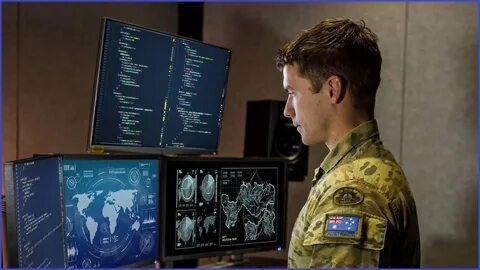In today’s world, the increasing demand for water and the dwindling supply have raised concerns about water management. Urbanization, industrialization, and population growth are putting immense pressure on water resources. To combat this issue, leveraging technology, particularly the Internet of Things (IoT), is emerging as a game-changer. Smart water management using IoT can significantly improve water conservation, distribution, and consumption efficiency.
In this blog, we will explore how IoT is revolutionizing water management systems, its benefits, use cases, and its future potential in addressing global water challenges.
Table of Contents
ToggleWhat is Smart Water Management?
Smart water management involves the use of advanced technology to monitor, manage, and control water systems efficiently. It enables better water resource management by integrating data collection, real-time monitoring, predictive analysis, and automation. The goal is to optimize water use, prevent wastage, and ensure sustainable supply without compromising water quality.
IoT plays a crucial role in smart water management by connecting devices like sensors, meters, and actuators to gather data in real-time. This data-driven approach helps utilities, industries, and households better manage water distribution and usage.
How IoT Transforms Water Management
IoT offers a range of features that make water management smarter, more efficient, and sustainable:
-
Real-time Monitoring: IoT-enabled sensors can track water flow, pressure, and quality in real time. By monitoring parameters continuously, it becomes easier to detect anomalies such as leaks, contamination, or irregularities in water supply.
-
Data Collection and Analysis: IoT devices collect massive amounts of data from water systems. This data is processed and analyzed to detect patterns, optimize water usage, and predict maintenance requirements. Historical data can also be used to identify trends, predict future demands, and mitigate water shortages.
-
Automated Control: IoT systems can automate water distribution based on demand patterns, ensuring efficient and equitable water supply. Smart valves and pumps can be controlled remotely, allowing for instant adjustments to optimize water pressure, reduce wastage, and manage water flow.
-
Leak Detection and Prevention: One of the most significant benefits of IoT in water management is early leak detection. Sensors can detect even minor leaks in pipelines or tanks, allowing for immediate repairs before the issue escalates. Preventing leaks reduces water wastage and associated repair costs.
-
Smart Meters: Smart water meters measure water consumption more accurately than traditional meters. They provide detailed information on household or industrial water usage patterns, helping users adjust their consumption habits to conserve water.
-
Remote Access and Control: With IoT, water management systems can be accessed remotely. Users can monitor water levels, quality, and distribution through mobile apps or web-based dashboards, making it easier to manage water resources from anywhere.
-
Predictive Maintenance: IoT sensors can monitor the condition of water systems, predicting maintenance needs before issues become critical. This proactive approach reduces the chances of system failures, minimizes downtime, and prolongs the lifespan of infrastructure.
Benefits of Smart Water Management Using IoT
-
Water Conservation: IoT solutions help minimize water wastage through real-time monitoring and leak detection. With timely interventions, significant amounts of water can be saved.
-
Cost Savings: By detecting leaks early, optimizing distribution, and reducing manual interventions, IoT reduces operational costs for utilities and businesses. It also helps homeowners save on water bills by promoting efficient water use.
-
Improved Water Quality: IoT sensors continuously monitor water quality parameters, such as pH, turbidity, and chemical levels. This ensures safe and clean drinking water, while immediate alerts prevent the distribution of contaminated water.
-
Energy Efficiency: IoT can optimize the energy consumption of water systems by automating pumps, valves, and filtration units. By reducing energy wastage, utilities can lower their carbon footprint and contribute to environmental sustainability.
-
Better Decision-Making: The data collected by IoT devices provides valuable insights into water consumption patterns, demand fluctuations, and system performance. Utilities and industries can use this data to make informed decisions and improve water management strategies.
-
Sustainability: By reducing water wastage, conserving energy, and improving operational efficiency, smart water management contributes to sustainability efforts. It aligns with global goals to protect the environment and ensure equitable access to clean water.
Challenges in Implementing IoT for Water Management
Implementing IoT for water management presents several challenges, including high initial costs for sensors, infrastructure, and data processing systems, which can strain the budgets of smaller municipalities or rural areas. Ensuring data security is also a major concern, as IoT systems generate vast amounts of sensitive information that can be vulnerable to cyber-attacks. Interoperability between different IoT devices and platforms is another hurdle, as seamless integration is essential for large-scale deployment. Additionally, maintaining IoT devices, especially those in harsh environments, requires regular upkeep and calibration, which adds to operational expenses. These challenges must be addressed to fully harness IoT’s potential in water management.
The Future of Smart Water Management
As IoT technology continues to evolve, the future of smart water management looks promising. Advancements in AI and machine learning can enhance the predictive capabilities of IoT systems, further optimizing water usage and minimizing wastage. Governments and water utilities are increasingly recognizing the importance of smart water management solutions, leading to wider adoption and investment in IoT infrastructure.
Smart water meters, AI-powered analytics, and decentralized water management systems are expected to become mainstream in the coming years. With climate change and water scarcity becoming more pressing issues, smart water management using IoT will play a crucial role in ensuring sustainable access to water for future generations.
Conclusion
The integration of IoT into water management is revolutionizing how we manage, monitor, and conserve this precious resource. By providing real-time insights, automating processes, and enhancing water distribution efficiency, IoT is driving sustainability and ensuring that water is used wisely across industries, agriculture, and residential areas. As the technology continues to evolve, smart water management will become an essential tool in addressing global water challenges.




